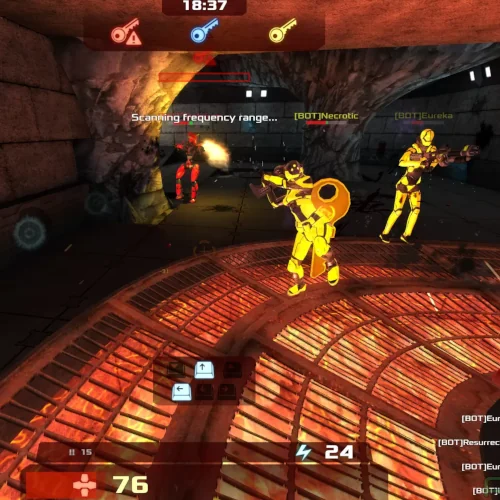There Still Are Some Pain Points For Linux Gaming Moving Into 2018

Here's a look at those problems noted from five years ago and whether they are still relevant today.
Then: "The open-source Linux graphics drivers (Intel / Radeon / Nouveau) still have a long ways to go."
Now: Thanks to all the work particularly made in 2017, this is now mostly a mute matter. Especially for the Radeon drivers, the RadeonSI+RADV drivers are hands-down better for Linux gaming than the proprietary AMDGPU-PRO (formerly Catalyst/fglrx) drivers. Thanks to the work done by AMD, Valve and the community, the Radeon open-source Linux driver is now in great shape. The same goes for Intel with their open-source driver stack being in terrific shape for the hardware's capabilities, but unless using Iris Graphics, really aren't suited for gaming. Where there still is more to be desired is on the Nouveau front with they not being suitable for Linux gaming due to NVIDIA not yet sending out the signed PMU firmware / properly allowing re-clocking on recent generations of GPUs.
Then: "There's still a variety of gaming peripherals that go without full Linux support like many USB gaming mice and keyboards with their extra functionality."
Now: This situation has improved since 2012 with more third-party/open-source utilities for supporting different gaming peripherals on Linux, but it's still far from ideal with not many peripheral manufacturers officially supporting Linux and thus these other projects being unofficial/community-supported. But at least the Steam Controller is working out well on Linux and many other popular controllers. Certainly would still like to see better gaming peripheral support on Linux.
Then: "Other random Linux hardware support "gotchas" like kernel/driver regressions unfortunately not being too uncommon."
Now: There are less kernel regressions these days than five years ago and other improvements, but it's still not a trouble-free experience or as easy for Windows converts to use as it could be... There's still various hardware quirks under Linux, etc, but the situation continues to improve.
Then: "Most open-source games are still disappointing in terms of their artwork, other game assets, originality, etc."
Now: With Steam on Linux we have more indie games available now, but when it comes to original open-source game projects, this situation has really not improved at all over the last half-decade. With Linux gamers having more indie and high-profile closed-source games to play, arguably there's less interest now in open-source games than during the pre-Steam period. There still are some nice open-source game examples like 0 A.D. and Unvanquished (if they ever get back to releasing) and Xonotic, but titles like OpenArena, Warsow and other popular games in the past have faded away. The few open-source games still being maintained by a community are largely based on older engine tech like ioquake3 with sadly not seeing much from idTech4/ioDoom3 or newer engines. Some of the popular projects these days are just working on engine re-implementations of past popular commercial games.
Then: "There's still a stigma attached to Linux that its users want everything for free and aren't very motivated to pay for software or support."
Now: This has improved somewhat, but still there are many out there who will not buy a full-priced Linux game port, etc. It was just earlier this year that well known Valve Linux/VR developer Pierre-Loup Griffais commented, "Maybe Linux users could try actually buying games if they wanted people to port them!" As a slight jab at some in the Linux gaming community.
Then: "There's a shortage of highly-qualified Linux game developer veterans for porting games to Linux."
Now: This doesn't appear to be too much of a problem as we move into 2018. Ryan Gordon continues working on countless Linux game ports, Feral Interactive has been doing many of the AAA'ish Linux game ports, and Aspyr Media also still carries out Linux game ports from time to time. There certainly are more Linux/OpenGL (and now Vulkan) experienced developers now than there were in 2012 with many of them just being accustomed to Microsoft APIs. I really haven't heard any complaints in a long time of studios not knowing how to port to Linux or the inability to figure it out.
Then: "Fragmentation and differences among Linux distributions continue to be a problem for studios bringing their software to 'Linux.'"
Now: Fragmentation and the plethora of Linux distributions still is a problem for some, but it's not too bad anymore. If the games properly target modern SDL2, a recent glibc, etc, the games are fairly portable across Linux distributions. OpenGL drivers these days are also better tested and closer to spec, though there's still routine Linux game releases where only NVIDIA graphics are officially supported. Most game studios continue to just officially support the latest Ubuntu LTS release. Efforts like the Solus Steam LSI Snap and other sandboxing efforts may also help Linux gaming in the future.
Then: "There's already been major game studios that have supported Linux in the past but have -- at least temporarily -- left the scene after being less than pleased with their return on investment for supporting Linux."
Now: The two studios mentioned in that article five years ago were Epic Games and id Software. Epic Games since returned to supporting Unreal Engine on Linux and that's been progressing along with having Linux builds available for Unreal Tournament, but I wouldn't consider them in love with Linux. Id Software meanwhile hasn't made any new Linux games available and it doesn't appear any are on their road-map even after they released DOOM with Vulkan support for Windows.
31 Comments

